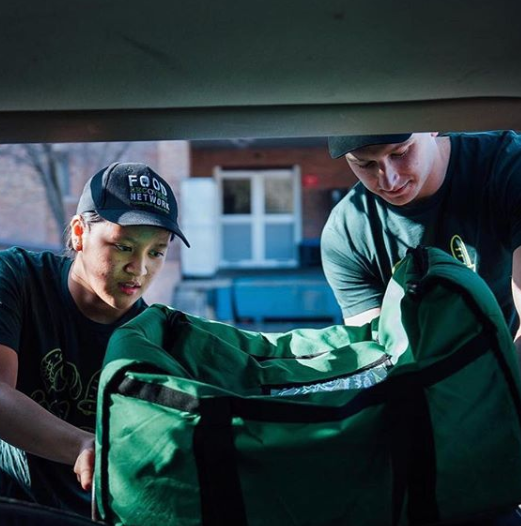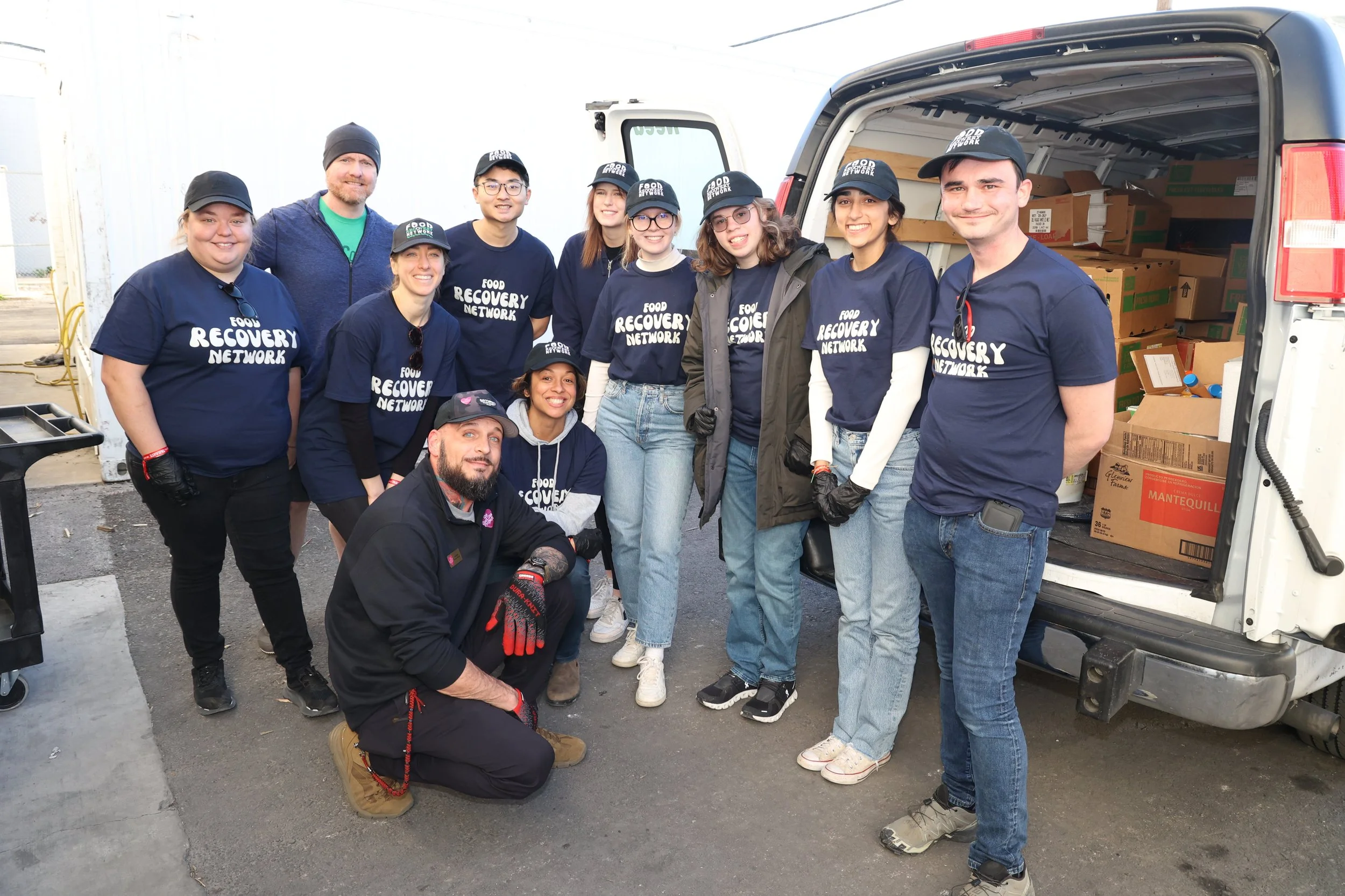This year FRN launched a partnership with The FarmLink Project (FarmLink), a student-led organization that has rescued millions of pounds of surplus food from farms during the pandemic. FarmLink saw a need and an opportunity to mitigate farm food loss as dining facilities closed down in April, and FRN recognized our own power to help in the process.
FRN volunteer efforts led to the recovery and distribution of 38,000 pounds of celery in September.
FRN’s Intersection to this Work
Many FRN Student Chapters have been unable to recover surplus food from their campuses this year. At the same time, the massive shift to virtual life has opened up new possibilities when it comes to volunteering. With an estimated 54 million Americans experiencing food insecurity, FRN recognized the urgent need to activate our students and alumni to continue fighting food waste.
In September, 120 FRN students and alumni mobilized to identify opportunities for food recovery on farms, enabling FarmLink to intervene before any food went to waste. In this way, our students and alumni are using their experience, skills, and passion for food recovery to address the current needs of farmers and food insecure communities across the country. In the process, they are also gaining valuable knowledge surrounding farm food loss and waste and developing skills to initiate the recovery and distribution of food on a large scale.
“I think this is an incredible learning opportunity that is constantly pushing me and teaching me that any idea could be turned into an action - all it takes is belief, drive and a few committed people. FarmLink is continuously maturing in its intentions and my specific role on the farms team has made me more confident in both the skill of cold-calling and trusting that the community of volunteers is there for the farmers and volunteers at every step.” - FRN Alumna
FRN’s volunteer engagement
Our work has already resulted in the recovery of 450,000 pounds of food. Aside from the research and outreach, FRN volunteers are taking on leadership roles with FarmLink and energizing others to dive into the work. This partnership combines the strengths of our network with FarmLink’s logistical and tactical prowess to achieve maximum impact.
FRN volunteers continue to identify food recovery opportunities before the fall harvest season ends.
"The FarmLink Project has been so lucky to have the help of FRN members as we continue to grow our organization. The first group of FRN members began working hand in hand with us when we had just crossed the 5 million pound mark and now with The FarmLink Project approaching 15 million pounds, we can use all the help we can get with the next 15 million." - Cooper Adams, Head of Farms Team at FarmLink
If you’re feeling inspired by this work, sign up to volunteer! Now is the time to take action. With your help, FRN and FarmLink can recover one million pounds of food before the end of the year.






